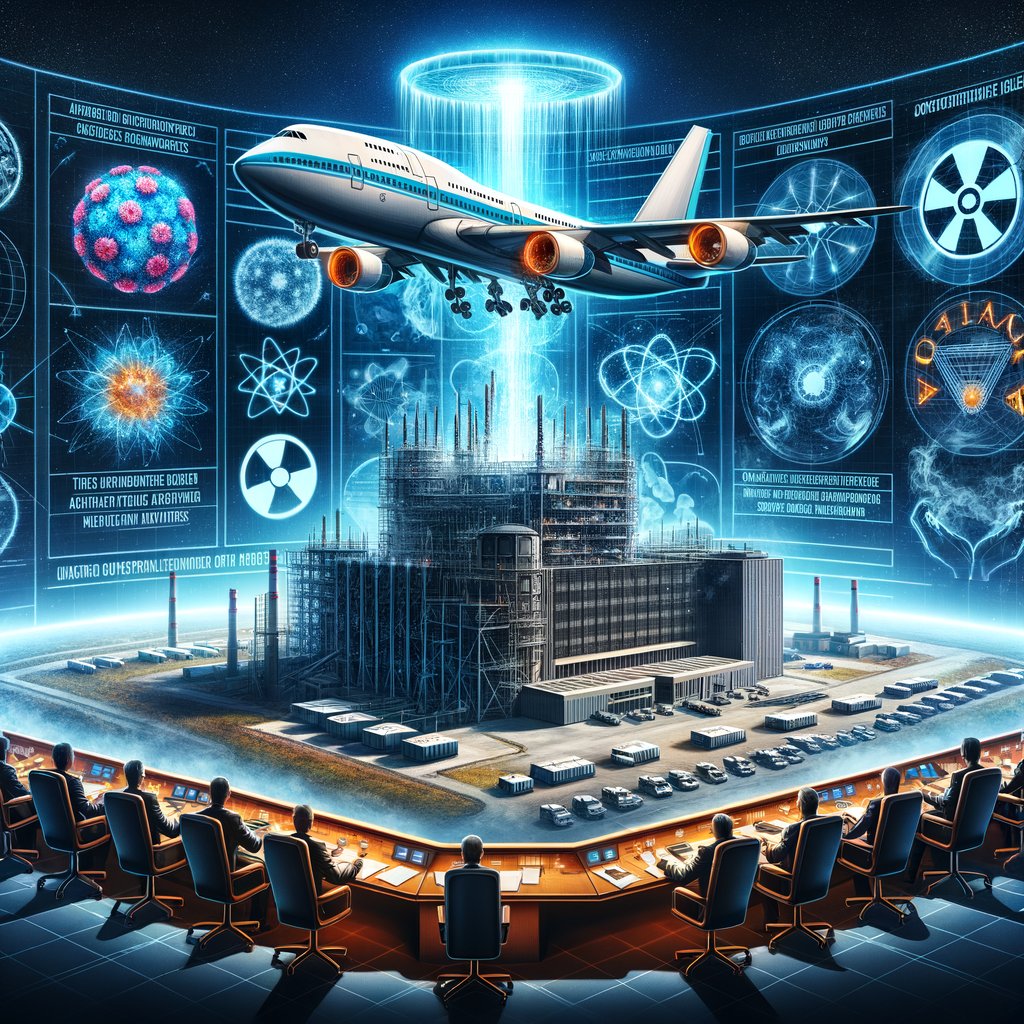Image created by AI
South Africa Advances Nuclear Safety with New Regulatory Laws
President Cyril Ramaphosa of South Africa has enacted the National Nuclear Regulator Amendment Bill, infusing substantial enhancements into the country's nuclear safety protocols. This critical legislative update extends its reach from intensifying defence facility decontamination to ensuring the safety of airline pilots against cosmic radiation.
The bill revises the National Nuclear Regulator Act of 1999. Its amendments are in strict alignment with the latest international regulatory best practices as advocated by the International Atomic Energy Agency (IAEA). This alignment underscores South Africa’s ongoing commitment to global safety standards, given its status as one of the founding members of the IAEA and a signatory to multiple international nuclear safety conventions.
One of the pivotal changes brought about by this legislation is the bolstered function of the National Nuclear Regulator (NNR). The NNR now possesses expanded authorization to oversee and ensure that properties released for civilian use by the South African National Defence Force (SANDF) are devoid of radiation risks. Additionally, the amendments facilitate the rigorous decontamination, decommissioning, and repurposing of military sites and equipment.
Moreover, the bill addresses the occupational hazards faced by aircrew due to cosmic radiation exposure at altitudes below 49,000 feet. It mandates regulatory oversight to monitor and mitigate these risks, thereby enhancing the safety of airline crews.
The governance and operational scope of the Regulator are also refined by the new law. It delineates the responsibilities and the term durations of the Regulator’s board and establishes committees to aid in governance. Furthermore, the law specifies that certain activities, particularly those involving nuclear materials, cannot commence without the requisite approvals from the NNR.
One significant legal modification excludes the operation from the Defence Act of 2002 concerning foreign naval vessels. This change addresses the complexities involved with foreign states disclosing details about naval vessels when visiting South African ports.
The enactment of the National Nuclear Regulator Amendment Bill marks a substantial progression in fortifying the safeguards against the risks posed by nuclear materials and activities. The amendments ensure that defence facilities, previously susceptible to nuclear contamination, undergo thorough sanitation and checks before civilian redeployment. Additionally, the enhanced scrutiny and regulatory capabilities of the NNR are set to further protect the public and the environment from potential nuclear hazards.
As such, this legislation not only boosts South Africa's nuclear safety measures but also aligns the country more closely with stringent global standards, ensuring comprehensive protection and safety for its citizens and their natural surroundings.










